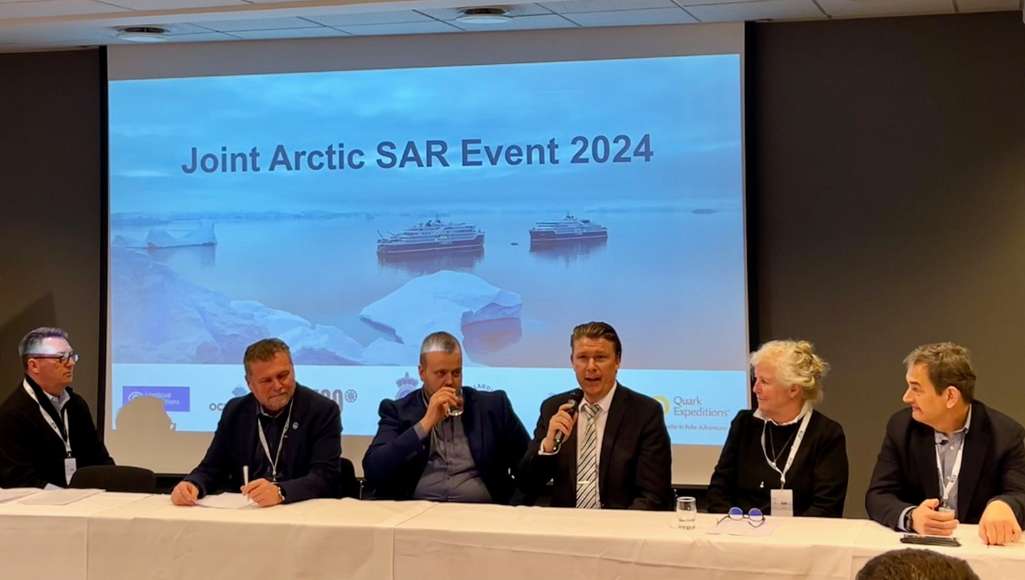
Tracking the Healthcare Resource Impact of Artic Cruising
By Dr. Karl Bergsten, Associate Chief Medical Officer
VIKAND Associated Chief Medical Officer, Dr. Karl recently had a chance to present findings from a joint study between VIKAND and the Association of Arctic Expedition Cruise Operators (AECO), titled “Cruise vessel healthcare in the Arctic region and local community impact”, to attendees of AECO’s Joint Arctic SAR event in Iceland.
The catalyst for this study was growing concern in Arctic communities over the rising number of sick and injured cruise ship guests being offloaded to regional medical facilities, and the impact this has on local healthcare resources.
With AECO's support and sponsorship, we initiated the study in November by reaching out to every cruise line that sails in the Arctic, as well as to local medical facilities. Through a short survey, we hoped to gain a better understanding of patients being referred for shoreside care – their diagnoses, demographics, impact and more.
Polar cruises typically travel with minimal medical equipment, yet the climate and activities pursued on expeditions pose a higher risk to health. As a result, Arctic cruising is an overall riskier undertaking with greater potential to strain already limited health resources, both onboard and ashore.
One way to reduce risk is a pre-voyage medical screening. VIKAND’s new online screening platform removes many of the logistical barriers to this, making it easier to screen at-risk guests.
Despite limited data, our study found that most Arctic health events were orthopaedic in nature, and most disembarkations were cardiac events. On the latter point, one issue we found was the lack of useful recordkeeping. Operators don’t necessarily collect specific data, and local healthcare facilities don’t track which patients come from cruise ships. This makes it difficult to accurately study the full impact on local healthcare resources.
Moving forward, we recommend that AECO set up a unified database where members can share anonymous data on referrals and disembarkations. This will help the polar cruise industry better understand its impact on regional healthcare resources.
In this issue of Pulse, meet the partners joining VIKAND at Seatrade 2024 to exhibit in the Seafarer Human Sustainability pavilion, and learn why mental health resilience should be an integral part of any strategy to combat the urgent mental health crisis among seafarers.


